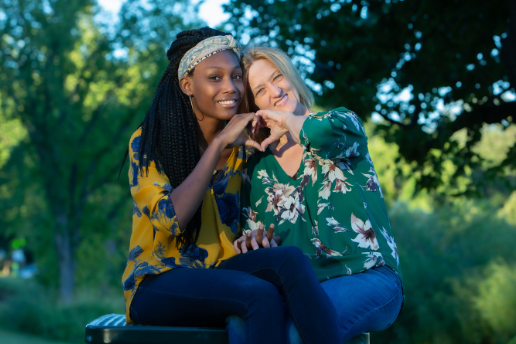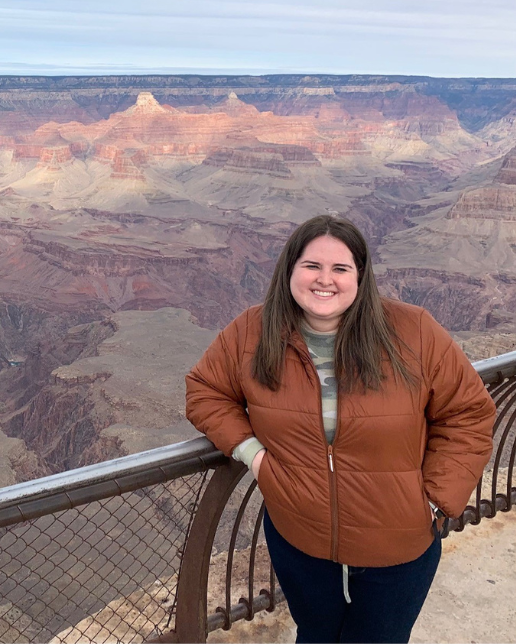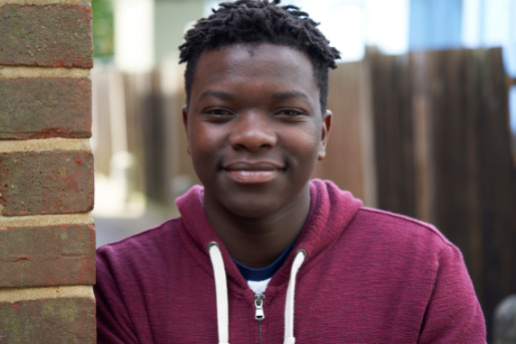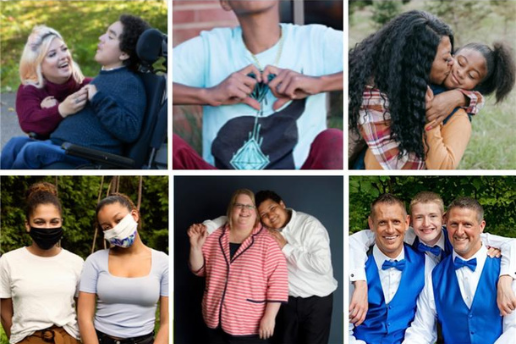 As a supervisor in Children’s Home’s foster care and adoption programs, Amy Fogel specializes in the work of child specific recruitment (CSR) which means advocating for youth who are facing difficulties finding permanent caregivers. Many of the children receiving CSR services may be teens close to aging out of the foster care system, or part of a sibling group needing to be placed together. This program specializes in serving children of all ages with more extensive medical, behavioral, or behavioral health needs.
As a supervisor in Children’s Home’s foster care and adoption programs, Amy Fogel specializes in the work of child specific recruitment (CSR) which means advocating for youth who are facing difficulties finding permanent caregivers. Many of the children receiving CSR services may be teens close to aging out of the foster care system, or part of a sibling group needing to be placed together. This program specializes in serving children of all ages with more extensive medical, behavioral, or behavioral health needs.
Amy and the other Child Specific Recruiters (CSRs) are tasked with identifying permanent, loving families able to accommodate the specific needs of each youth they serve. They do this while simultaneously building a trusting relationship with the youth.
“Much of what we do is personalize the resources we can offer based on what the youth needs,” Amy said. “Our workers get to know a youth really well and help them learn what permanency might feel like, and what characteristics and values would be important to them in creating meaningful relationships.”
 The heart of the CSRs’ job is building trust – with the children waiting to be adopted and with the prospective adoptive families. Amy explains that there is no one formula for success, but that it all starts with the CSRs building a relationship and really getting to know each child.
The heart of the CSRs’ job is building trust – with the children waiting to be adopted and with the prospective adoptive families. Amy explains that there is no one formula for success, but that it all starts with the CSRs building a relationship and really getting to know each child.
“We meet with them at least once a month,” said Amy. “One of the easiest ways is to take them to do something fun like a sporting event, dining out or going to the park. We want to get to know them through doing things.”
Through these activities the youth get to explore what it is like to form a trusting relationship. Most are coming from backgrounds that include abuse, neglect, challenges, and multiple placements. The relationship that may need the most attention can be the one the youth have with themselves. Amy and her team create Life Books for the kids they serve. They incorporate pictures received from county workers, letters from former caregivers, information about birth family and even will do some internet sleuthing to uncover pictures or information important to that child’s history. They put that all together into a small book that becomes a version of their life story.
“I worked with a teenage boy who was never really engaged with the idea of a Life Book,” said Amy. “But when I gave it to him, he was thrilled! He ended up sharing it during a visit with his siblings who also didn’t have pictures of their childhood. His book gave all of them a story arc of their life. It’s a lot of work, but it’s worth it.”
CSRs will reach out to important adults in a child’s life, that may be a relative, a coach, teacher or any person who has taken an interest in their life. “We do a lot of digging, asking who is in their life, who do they wish they were in touch with still,” Amy said. “We reach out to those people and present the idea of them being a connection for the child, a special adult who could see them on holidays, or visit them on a regular basis. We’d like it to turn into an adoption, but establishing a close relationship is where it starts.”
 There are successes. There are heartbreaks. And stories that seem improbable. Amy recalls a youth she worked with who needed a lot of dental work, during which he formed a close connection with a dental hygienist who ended up adopting him.
There are successes. There are heartbreaks. And stories that seem improbable. Amy recalls a youth she worked with who needed a lot of dental work, during which he formed a close connection with a dental hygienist who ended up adopting him.
For the children who do end up in adoptive families, it takes an average of 9-12 months from the time they are placed with a family until the adoption is finalized. During that time the CSRs continue their work with the whole family unit, work that may continue for several months after the adoption.
Typically, youth who turn 18 years old will face aging out of the foster care system. CSR services are especially critical for this population. Some will decide they don’t want to be adopted or don’t want to continue into extended foster care if it is available to them. Children’s Home will continue to work with them to offer support in establishing their own independent lives and to help them establish trusting, lasting connections.
Amy is still in touch with one of the first youth she worked with, Jahnia. When they met, Jahnia was 11 years old and had already been in foster care for four years. She is now 18 years old and the mother to a beautiful five-month-old son. Initially, Jahnia did want to be adopted but decided that once she had her son, formal adoption would be too complicated. Jahnia expresses gratitude for the connection with Amy, one she still relies on from time to time. Times like a recent day when she knew she had someone to call on a particularly stressful day where she needed help coping with a crying baby and the stress of high school.
“The relationships are one of the most meaningful pieces of this program,” said Amy. “It’s just so fun to see them as kids, to build the trust and to watch relationships start to emerge. We’re not here to have a disciplinary role. We’re here to find out what they want for their future, what permanency could look like for them.”
 Amy admits the kids they work with often tug at her heartstrings and it can be difficult to separate her work from her emotions. But she notes, that serves as a reminder of the deep importance of this work. “I can’t take them all home with me, and that makes me work much harder for them.”
Amy admits the kids they work with often tug at her heartstrings and it can be difficult to separate her work from her emotions. But she notes, that serves as a reminder of the deep importance of this work. “I can’t take them all home with me, and that makes me work much harder for them.”
CSR services play an essential role in fulfilling the mission of Children’s Home. Amy and her team of CSRs will provide these in-depth, critical services to more than 80 youth in Minnesota foster care this year.
View Information About Youth Who Wait

